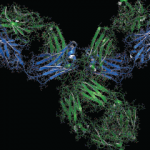CHICAGO—Josef S. Smolen, MD, professor of internal medicine and chair of the Department of Rheumatology, Vienna General Hospital, Austria, presented the prestigious Paul Klemperer, MD, Memorial Lecture at the 2018 ACR/ARHP Annual Meeting. Dr. Smolen, whose work is frequently cited, created the treat-to-target strategy for rheumatoid arthritis (RA). Dr. Smolen began by noting a simple…





